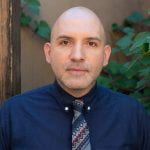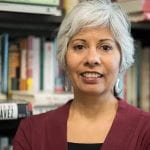Sustaining Inclusive Cities involves various interrelated initiatives, all of which are aimed at sustaining inclusive cities, both physically and culturally.
Outcomes
More detailed information on these opportunities will be posted here, as it becomes available.
Collaborative for Inclusive Urbanism
The Collaborative for Inclusive Urbanism—a cross-disciplinary teaching and research platform for exploring the consequences of exclusionary practices in the built environment—it incorporates three key projects: 1) the Albina African American History StoryMap; 2) a new urban racial justice component of the Pacific Northwest Preservation Field School, and 3) various research projects and studios by the PPPM Access and Equity Research Hub and the Department of Architecture on equity-based planning and housing design in the PNW.
Project Lead: John C. Arroyo
Museums and Inclusive Communities
The Museums and Inclusive Communities hub focuses on the intersection of museums and inclusive communities, aiming to bring awareness to the vital role museums play in fostering inclusivity within communities. We delve into academic literature in the fields of museology and community planning, analyze discourse and practices within professional organizations, and study inclusive programs implemented in diverse museums. Our goal is to bridge the gap between theory and practice by integrating these discussions and initiatives into the classroom setting. To achieve this, alongside our ongoing research, we propose the development of a First-Year Interest Group class (FIG) and we are designing a minor program within the School of Planning, Public Policy, and Management (PPPM). By engaging students from the beginning of their academic journey, we can spark their interest in the field and provide them with a solid foundation for further study and professional objectives.
Project Leads: John C. Arroyo | Eleonora Redaelli
The Albina Preservation Initiative
The Albina Preservation Initiative is a collaboration between the University of Oregon (UO) Just Futures Institute, Oregon Black Pioneers, Moreland Resource Consulting, Clatsop Community College Historic Preservation Program, The Mayo House, and the Architectural Heritage Center. The Albina Preservation Initiative is a step forward in making preservation work better for Black communities and will be a transformative shift for Oregon. This project seeks to digitally disseminate the historical records of African Americans in Portland, using StoryMaps, to increase access to Oregon’s African American environmental history as experienced in the historically Black Albina district.
Project Lead: John C. Arroyo
Pacific Northwest Preservation Field School
The CIU has developed a new urban racial justice component of the Pacific Northwest Preservation Field School. The PNW Field School works with its partners—the National Park Service, the state parks, and historic agencies in Oregon, Washington, and Idaho—to identify experts in the topics relevant to each field school site. The PNW Field School will focus on the preservation of a project significant to Portland’s historically Black Albina district, working with the Vernacular Architecture Forum’s (VAF) new Mellon-funded African American Field School Initiative to select a diverse group of students for the field school and identify appropriate craftspeople to teach in the Albina field school in a way that honors Black history.
Project Lead: John C. Arroyo
Access and Equity Research Hub
The Access and Equity Research Hub will study the re-emergence of equity-based planning within the context of land use, transportation, and housing in the PNW. In large part, this renewed attention has emerged because the region’s cities are now grappling with increased racist tensions and increasing income inequality. Social movements such as Black Lives Matter, DREAMERS, and those fighting gentrification and displacement create an opportunity for urban planners and designers to engage in meaningful efforts to implement equitable programs and initiatives. Research will focus on the PNW to trace the historical evolution of equity as a concept from the Progressive Era to the present. We will analyze the transformation of equity as a concept, explain how it has changed throughout the evolution of planning practice, and undergird equity as a planning approach within the region’s famous growth-boundary planning history.
Project Leads: John C. Arroyo
Architectural Studios
Latinx growth in the PNW represents the largest growth of ethnic diversity in the region and signals an increased need for equitable housing. While the housing crisis is a global phenomenon, its impact on Latinx communities is especially acute. Current debates about equitable housing focus mostly on the economic aspects of accessibility, often failing to recognize the cultural differences that make residential design and the urban environment truly inclusive.
To complement research on equity-based planning and design, the Access and Equity Research Hub and the Department of Architecture will conduct a series of three architectural design studios over three years: two of them being “vertical” studios (one-term projects developed by a combination of graduate and undergraduate students) and one “terminal” studio (capstone project developed over the entirety of the academic year). These studios will examine the future of Latinx housing in major metropolitan areas of the Pacific Northwest, in three new immigrant gateways: Cully district (Portland)—home to the largest urban Latinx population in Oregon, Caldwell (suburban Boise metro area), and neighborhoods along the Duwamish Waterway (South Seattle). Through applied research and design, students will learn about inclusive community-based design practices for new immigrant populations in the largest urban metros of the PNW.
By the end of this three-year project, we will produce design guidelines for accessible and culturally inclusive housing models and a series of student projects, which will be presented in annual exhibitions at the UO’s College of Design and as a part of the PNW Atlas of Essential Work. The research team will also present our findings at the annual American Institute of Architects conference and produce a bilingual digital booklet shared with students and community partners.
Project Lead: John Arroyo
Highway Historical Markers in Oregon
The database-in-progress, Highway Historical Markers in Oregon, will be developed into a website. This database is currently being created by a team of students who are usually underrepresented in undergraduate research at universities. Our goal is to analyze how such markers and landscapes represent settler colonization and white supremacy, especially in terms of land and resource use. Highway Historical Markers in Oregon will illuminate the nature of regional racial narratives and how Oregon narrates its past.
Project Lead: Laura Pulido
Team
Laura Pulido, Ph.D. (She/Her)
University of Oregon
Professor | Geography, IRES
Director | Critical Race Lab
Co-PI | PNW Just Futures Institute
 Eleonora Redaelli
Eleonora Redaelli
University of Oregon
Associate Professor | School of Planning, Public Policy, and Management
Katrina Maggiulli (she/they)
University of Oregon
Ph.D. Student | Environmental Sciences, Studies, and Policy and English
JFI Collaborative for Inclusive Urbanism Research Assistant
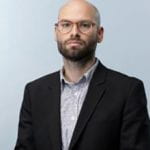 Jerolim Mladinov (he/him)
Jerolim Mladinov (he/him)
University of Oregon
Professor of Practice | School of Architecture & Environment
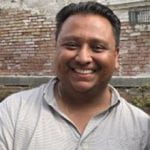 Gerard Sandoval, Ph.D. (he/him)
Gerard Sandoval, Ph.D. (he/him)
University of Oregon
Associate Professor | PPPM
Commissioner | State of Oregon, Land Conservation and Development Commission
 Joanna Bernstein (she/her)
Joanna Bernstein (she/her)
University of Oregon
Ph.D. Student | PPPM
Katherine Marple (she/her)
University of Oregon
Master of Architecture Student | School of Architecture & Environment
Student Researcher, Inclusive Cities
Iliana Lang Lundgren (she/her)
University of Oregon
Master of Nonprofit Management Student | PPPM
JFI Collaborative for Inclusive Urbanism Research Assistant
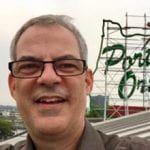 Jim Buckley, Ph.D. (he/him)
Jim Buckley, Ph.D. (he/him)
University of Oregon
Associate Professor, Venerable Chair | Historic Preservation
Head | Historic Preservation
